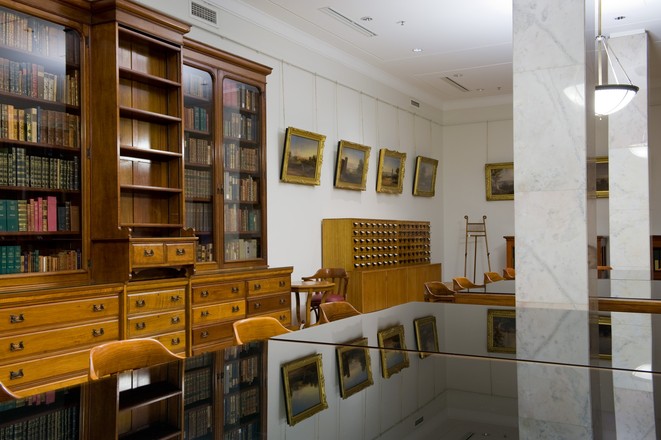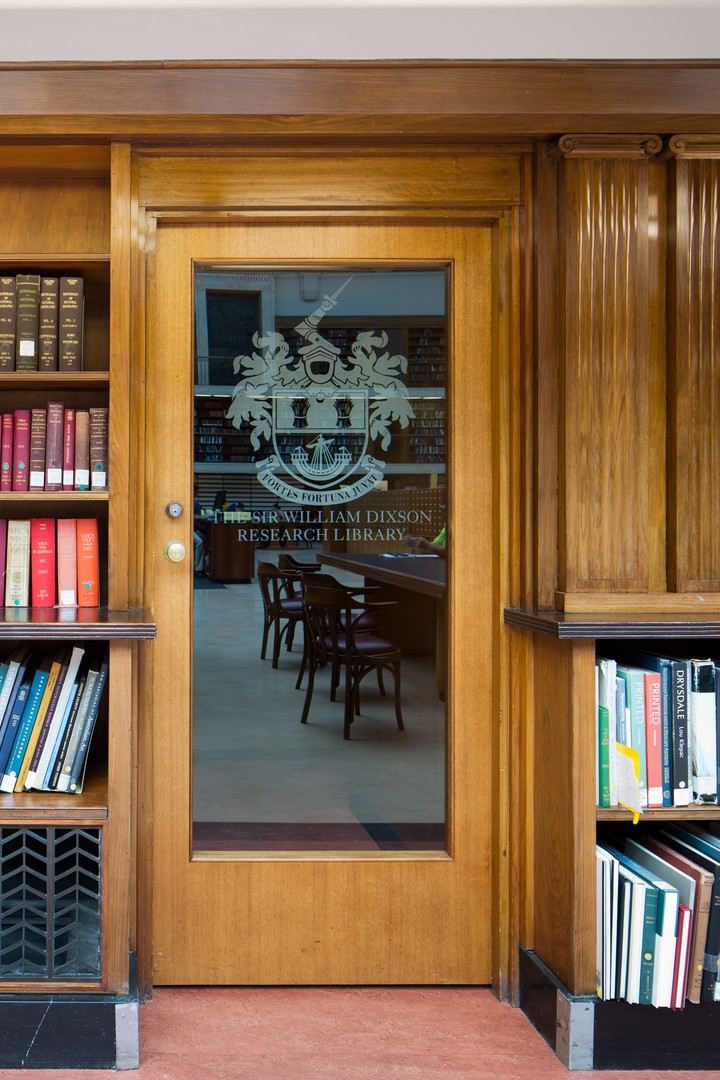
Sir William Dixson Research Library
1959
Accessible by appointment
Accessible by appointment
The Sir William Dixson Research Library acknowledges the Library's debt to Sir William Dixson, one its greatest benefactors. During his lifetime Dixson presented an unrivalled collection of historical pictures to the Library. Dixson also donated the Chaucer windows, the bronze doors and various other objects to the Library. On his death in 1952, he bequeathed over 20,000 books, manuscripts, paintings, maps, tokens, coins and medals: this collection is now known as the Dixson Library. He also left funds to support additions to the collection and publications of facsimiles of key historical manuscripts. This private room is dedicated to showcasing a selection of books and paintings from the Dixson collection, and is used as a space to conduct viewings of the Library‘s other rare books and special collections.
The ornate bookcase that lines the far wall from floor to ceiling once stood in Sir William’s home. The heavy blackwood shelves opposite and the long tables in the centre of the room are from the 1942 refurbishment of the Library. Dixson’s library clock, chair, easel, desk, candelabrum and selected paintings by artists such as Conrad Martens and Eugene von Guérard are also displayed in the room.


 Back to list
Back to list